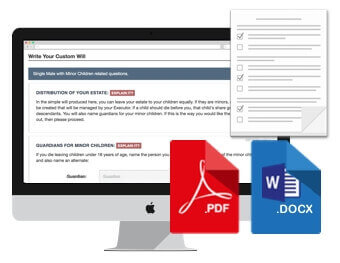Naming An Executor
An executor is the person you choose to carry out the terms of your Will, including administration of your estate. When the Will is admitted to probate, the court gives the executor authority to act as the testator or Will writer’s legal representative in administering the estate. The executor's duties include collecting probate assets of the deceased, paying valid debts (including any estate taxes), investing estate funds, and ultimately distributing them to the beneficiaries in accordance with the Will's terms.
Your executor should be someone you consider highly trustworthy, with good judgment. You might choose a trusted friend or relative who is capable of handling financial matters. Many banks will serve as executor, but they will charge for the service. In most cases, when a friend or relative agrees to become your executor, he or she will waive or refuse a fee.
There are some restrictions on who may serve as an executor. Many states will only appoint individuals who are residents of the same state. If you want to select a non-resident executor, contact your county clerk of probate court or an attorney to find out what your state allows. It is recommended that a second choice for executor be named in case the first choice refuses or is unable to serve. An executor should not be a minor, convicted felon, or non-U.S. citizen.
Most jurisdictions require that the executor post a bond to protect the assets of the estate. There are usually waivers available in most states that would excuse the executor from posting a bond, the most common of which is if you request it in your Will. By default, the Will generated at this site provides for such a waiver.
Protect yourself and your family with a legally binding Will.
Protect yourself and your family with a legally binding Will.
100% FREE of charge with instant .docx and .pdf download.

